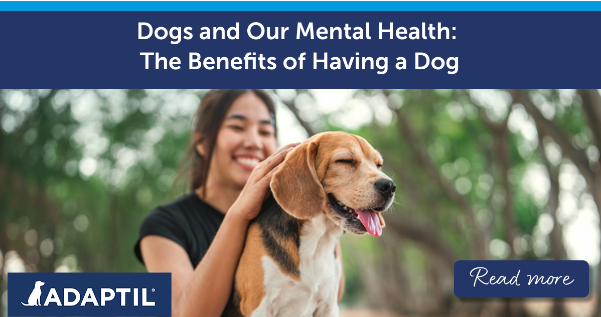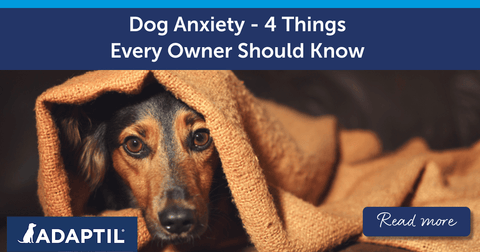
Dogs and Our Mental Health: The Benefits of Having a Dog.
Dogs and Our Mental Health: The Benefits of Having a Dog
We’ve all heard the saying that a dog is a man’s best friend, and it’s not too hard to see where this phrase might have come from! Welcoming a dog into the family brings all sorts of joy, and who doesn’t love being greeted by a bounding, affectionate bundle of fur and a wagging tail at the end of a long day!
But more than just fun and companionship, did you know that having a dog can actually have a significant boost on our mental health? We’re going to explore the many mental health benefits of having a dog and how these furry companions can positively impact our lives.
The Benefits of Having a Dog on Our Mental Health
So, dogs and mental health – how do the two go hand in hand?
From looking at how dogs can help with anxiety and depression, to the effects on our self-confidence, let’s dive straight in!
Emotional Support and Companionship
One of the most significant mental health benefits of having a dog is undoubtedly the emotional support they provide.
Dogs can be surprisingly perceptive to our emotions and can offer comfort simply by being present. Their unconditional love and loyalty create a sense of security which has been shown to help with any feelings of depression or loneliness. This can be particularly significant for people living on their own, providing that all-important social recognition.
Stress Relief and Anxiety Reduction
Dogs can similarly help with anxiety and stress relief in a number of ways.
The simple act of petting or playing with a dog can trigger the release of feel-good messages in the body like oxytocin and dopamine, promoting a sense of calm and relaxation. Dogs also seem to have the natural ability to practice mindfulness, living in the moment and focusing on what matters – and they encourage us to do the same!

Encouraging Exercise
Having a dog means regular walks and playtime, which naturally increases our physical activity. And we don’t need an expert to tell us this is a good thing!
Exercise is a well-known mood booster, improving sleep, reducing stress, and enhancing mental health. The routine of taking a dog for walks ensures we get outside and move, benefitting both us and our furry friends.
Opportunities for Social Interaction
On the subject of walks and exercise, dogs are social magnets.
Taking a dog for a walk or to the park often leads to interactions with other dog parents and animal lovers. These social encounters are great for creating a sense of community and belonging as well as easing any feelings of isolation. Plus, conversations about our dogs can serve as excellent icebreakers!
Mental Stimulation
Caring for a dog can be a huge source of mental stimulation.
Engaging in activities like training, playing fetch, or even exploring new environments together can be a great way to keep our minds active and sharp. In fact, this works both ways! Dogs need mental stimulation too, and these activities will benefit the both of us.
Sense of Purpose
Yet another benefit of having a dog is the sense of purpose and responsibility they add to our lives.
The routine of feeding, walking, and generally caring for a dog adds structure to our day and provides a sense of accomplishment. This sense of purpose can be particularly beneficial for individuals struggling with depression or those who feel a lack of direction in their lives.
Boosting Self-Confidence
Last but not least, dogs are non-judgmental companions who offer unconditional love and support. This acceptance can boost our self-confidence and self-esteem without the fear of criticism. Instead, dogs provide a safe space to be ourselves, which can be incredibly empowering.

Recent Studies on Dogs and Mental Health
A number of recent studies have also highlighted the positive impact of dogs on our mental health.
A 2021 study published in Frontiers in Veterinary Science found that having a dog can promote emotional balance and enhance our overall happiness. As well as a range of psychological benefits – including support for mental health disorders such as PTSD – there are biological benefits too. For instance, having a dog can lower our blood pressure and heart rate, as well as reduce levels of the stress hormone cortisol!
Another study from 2022 emphasised that having a dog can also contribute to both hedonic (pleasure-related) and eudaimonic (purpose-related) well-being. This is important for supporting dog parents through periods of poor mental health and providing a sense of purpose in our lives.
Caring for Our Dogs’ Mental Health
Of course, it’s one thing talking about the mental health benefits of dogs on humans, but we should also touch on how this works the other way round. After all, it’s essential to consider our dog’s mental well-being too.
Ensuring our dogs have a positive and comforting home environment is essential for their all-round happiness. We have a number of resources online that can help you to create the perfect environment for your dog, including tips on setting up your home for a new puppy as well as more general ideas for creating a canine-friendly space.
We also recommend using ADAPTIL Calm. Simply plug the pheromone diffuser into an electrical socket in your home and it will begin releasing natural appeasing messages. These are designed to help dogs adapt to life’s stressful situations and go a long way toward creating the ideal dog-friendly zone.
For more information on dogs and our mental health, or for advice on ADAPTIL Calm and our other products, why not get in touch? We’d love to hear from you! Or to stay up to date with all the latest info and guides from our experts, you can also join our online community.








































